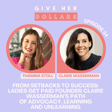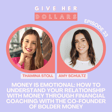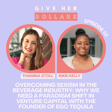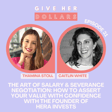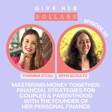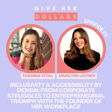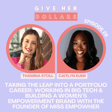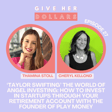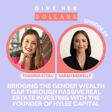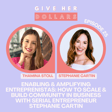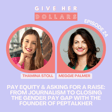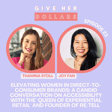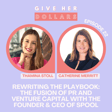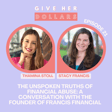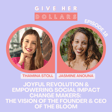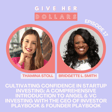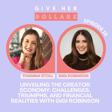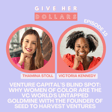
From Wall Street to Breaking Money Taboos: Driving Financial Literacy for Women with the Founder of Down to Earth Finance
Update: I recently launched my newsletter, The Sheconomist, and would love for you to subscribe: sheconomist.com - I share so many tools and resources that help young, high-achieving women with radical money and career self-advocacy.
----
This week, we welcome Galia Gichon to the Give Her Dollars podcast. Galia is a Wall Street veteran and financial expert with over two decades of experience in the industry. As Founder of “Down to Earth Finance” and active angel investor, Galia has dedicated much of her life to promoting women’s financial literary and supporting women-led startups. She has been quoted in Newsweek, CNN, The New York Times, the Wall Street Journal, Glamour, MSN Money and more.
In this conversation, we talk about the need to break the taboo surrounding discussions about money. Galia highlights the critical role that financial independence plays in providing women with the freedom to go after opportunities and advocate for gender equality.
Galia's most recent venture, the Tidal River Fund, is as a member-driven angel fund designed to support early-stage companies promoting diversity and equity. She discusses the journey that led to the fund's creation and how her story highlights the importance of bringing financial opportunities to smaller communities and inspiring women to take control of their financial destinies.
